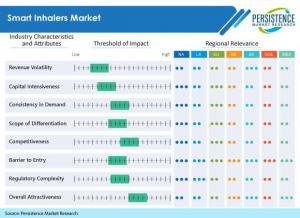Health - Trend Magazine originally published at Health - Trend Magazine
Approval Of First LAG 3 Antibody Will Further Boost The Development And Entry Of More LAG 3 Antibody In Market Says Kuick Research
/EIN News/ — Delhi, March 22, 2022 (GLOBE NEWSWIRE) — Global LAG 3 Inhibitor Clinical Trials & Market Opportunity Insight 2028 Report Highlights:
- Global LAG 3 Inhibitors Market Dynamics
- Clinical Approaches to Target LAG 3 Inhibitors
- Number of LAG 3 Inhibitors Drug In Trials
- LAG 3 Inhibitors Approved Patent Insight
- LAG 3 Inhibitors Trials By Phase, Company, Country, Indication
- Company Agreement/Partnership/Deals For Ongoing Trials
- LAG-3 Targeted Approach in Cancer Therapy
- Therapeutic Approaches for Novel LAG-3 Targeted Therapy
- Global LAG 3 Inhibitor Market Future Outlook
Download Report:
The lymphocyte activation gene-3 (LAG-3) is an immune inhibitory receptor which is expressed on activated T cells, B cells, and natural killer (NK) cells, which bind with the major histocompatibility complex-II. The critical role of LAG-3 includes inhibition of T helper cell proliferation and also reduces the production of interleukin-2 (IL-2), interferon-Y, and tumor necrosis factor (TNF). In addition to this, lymphocyte activation gene-3 is also expressed on tumor-infiltrating lymphocytes (TILs) and takes part in the immune-escape mechanism. These novel functions of LAG-3 have made it a potential immunotherapeutic target, especially in combination with other immune checkpoint inhibitor.
Opdualag is a fixed dose combination of nivolumab (Opdivo) and relatlimab (LAG-3 inhibitor) developed by Bristol Myers Squibb. It is first LAG-3 inhibitor which has been granted approval by US FDA on March 18, 2022 for the management of patients with unresectable or metastatic melanoma. The drug was approved on the basis of findings from phase-II/III RELATIVITY-047 trial, which assessed the combination versus single-agent nivolumab. The data from the trial demonstrated that combination yield a progression free survival rate of 10.1 months compared with 4.6 months in monotherapy arm. Furthermore, there were no treatment related adverse events associated with the combination.
Owing to their novel mechanism of action and other favorable parameters, it is suggested that Opdualag will show high adoption rates in the global market. Moreover, the ability of novel drug to overcome the problem of drug resistance with drugs targeting immune checkpoint programmed death-1 (PD-1)/death ligand-1 (PD-L1) and cytotoxic T lymphocyte associated gene-4 CTLA-4) will also enhance their uptake among cancer patients. Currently, the drug is approved only in US. However, the company is planning to submit new drug applications in other regions. It is expected that the drug will gain approval in other regions including Europe, China, Japan, South Korea, and Canada in forthcoming years which will further boost the growth of this segment during the forecast period.
Due to continuous technology advances in research and development in the field of oncology and the requirement for newer and more effective pharmaceutical drugs/therapies, companies are investing in the development of these new products to lessen the side effects and target the disease. The global lymphocyte activation gene-3 inhibitor market is highly competitive and consists of major key players including Bristol Myers Squibb, Macrogenics, Merck, GlaxoSmithKline, Nanobiotix, Novartis, F-Star Therapeutics, amongst others. Since the identification of lymphocyte activation gene-3 as potential target in the management of cancer, several pharmaceutical companies have adopted strategic alliances such as collaboration, partnership, or joint ventures to drive the growth of market. For instance, on 5th May 2020 Crescendo Biologics and Cancer Research announced a Clinical Development Partnership to progress one of Crescendo’s novel bispecific Humabody immunotherapies, CB213, into clinical trials targeting cancers of high unmet medical need.
The rising awareness regarding cancer and availability of various immunotherapeutic approaches and innovative diagnostic tools for detecting cancer will boost the global lymphocyte activation gene-3 inhibitor market. The rising investments by the biopharmaceutical industry players in the research and clinical trials of various therapeutics and diagnostics will further drive the growth of market during the forecast period. As per report findings, it is estimated that global lymphocyte activation gene-3 inhibitor market will surpass US$ 1500 Million by 2028. The report provides comprehensive analysis on the ongoing clinical trials and ongoing partnerships and agreements among key players. In addition, the report provides insights into potential role of LAG-3 inhibitor in cancer, HIV, and other autoimmune disorders. The report helps to cultivate a detailed comprehension of the historical, current and forecasted market trends by analyzing the market, unmet needs, drivers and barriers, and demand for better technology.

Contact: Neeraj Chawla Research Head Kuick Research [email protected] +919810410366

![]()
Health - Trend Magazine originally published at Health - Trend Magazine
 ,
,




